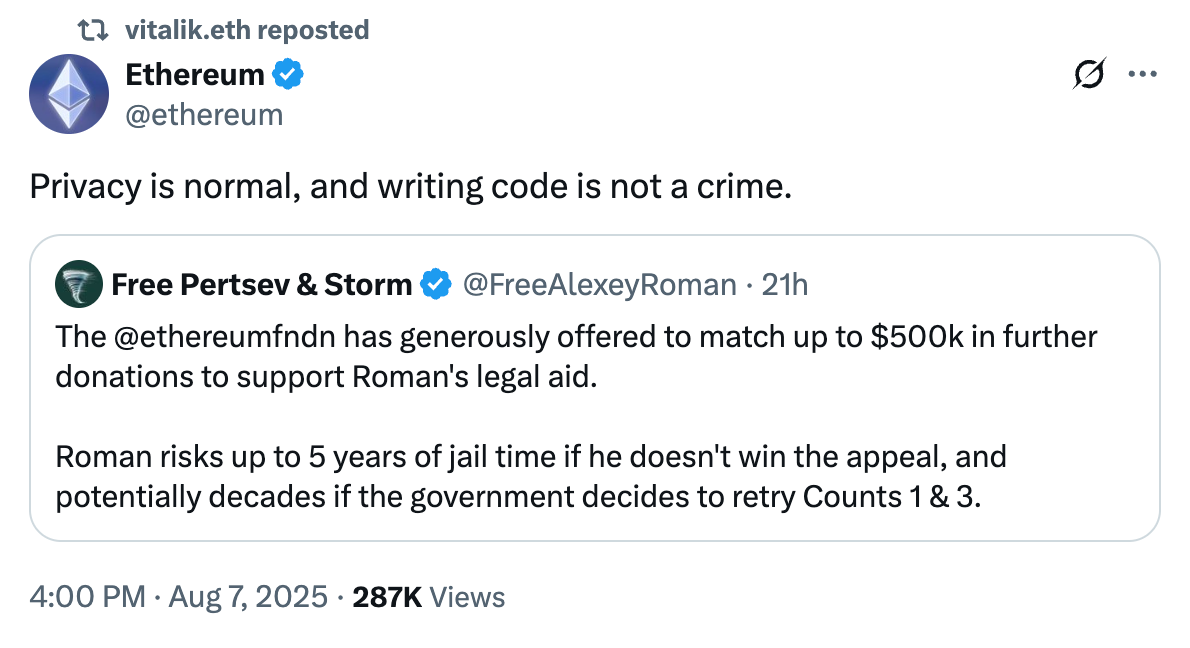
Support for Roman Storm‘s Defense Fund Surges Amidst Uncertainty
The legal battle surrounding Roman Storm, a core developer of the privacy protocol Tornado Cash, is intensifying. Following a partial verdict in his trial, which resulted in a guilty verdict on one count and a hung jury on two others, Storm now faces the possibility of a retrial. This precarious situation has prompted a renewed wave of support for his legal defense fund, with the Ethereum Foundation stepping in to bolster the effort.
Ethereum Foundation‘s Generous Matching Donation
The Ethereum Foundation announced its commitment to match donations to Storm’s defense fund, up to a substantial $500,000. This significant contribution underscores the broader concerns within the crypto community about the implications of this case, especially for open-source developers and the future of privacy-focused technologies. The initial fundraising efforts, which began months ago, are crucial as legal costs mount and the defense team prepares for the possibility of a second trial.

The Implications of a Potential Retrial
The US Department of Justice (DOJ) now has a critical decision to make: whether to pursue a retrial on the unresolved charges of money laundering and sanctions violations. Legal experts offer varying perspectives on the likelihood of this happening. The application of existing laws to decentralized technologies is at the heart of the legal debate. Should the DOJ choose to retry the case, it could set a significant precedent for how regulators approach the complex world of cryptocurrency and blockchain technology, potentially impacting the future of decentralized finance (DeFi) and privacy protocols.
Legal Precedent and the Future of Open Source
The outcome of Storm’s case holds broader ramifications for the entire crypto ecosystem. Concerns are being voiced regarding the potential for chilling effects on open-source software development. Many believe that the case could set a dangerous precedent that could stifle innovation and the creation of privacy-preserving tools. The legal arguments center on whether developers can be held responsible for the actions of users on platforms built using their code. This complex question is central to the defense’s strategy.
Looking Ahead: Appeals and Further Developments
Regardless of the DOJ’s decision on a retrial, an appeal of the guilty verdict is highly likely. Legal professionals anticipate that the appeals process will become the central focus of the case in the coming months. The debate surrounding the application of existing laws, particularly Section 1960, to money transmitters is expected to continue in the appellate court. The legal team is prepared to fight the conviction, recognizing the critical implications for the privacy-focused aspects of the blockchain space.
The case exemplifies the ongoing tension between the need for regulatory clarity and the imperative to protect the freedoms and innovation fostered by decentralized technologies.


